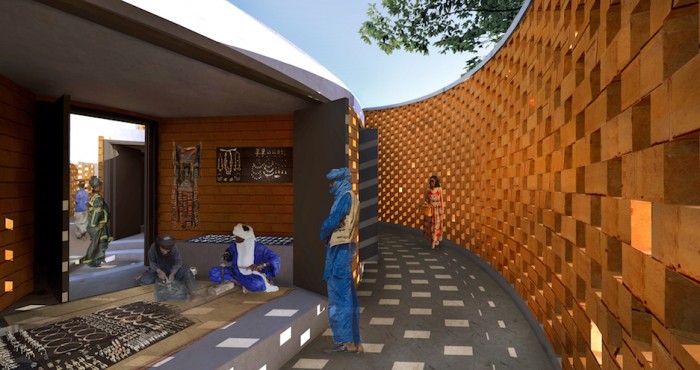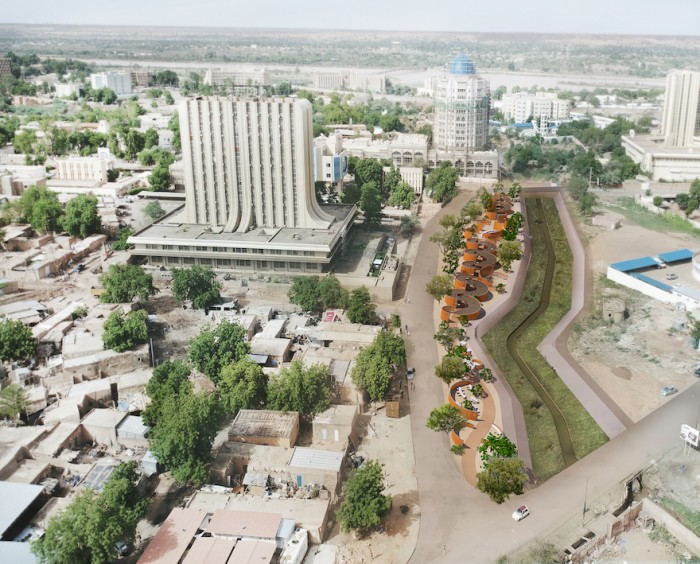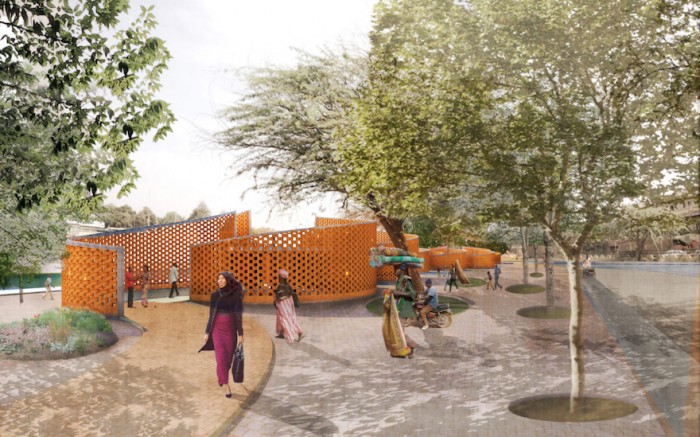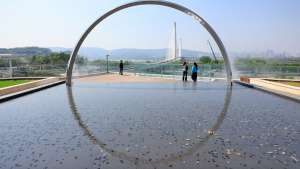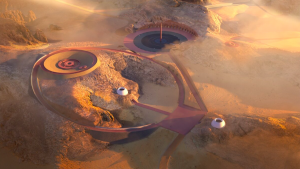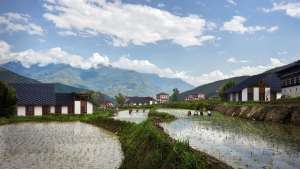Due to its history, Niamey, the capital of Niger, has a valley that cuts the city into two. The one side of the valley is where the more affluent citizens live while the poor live on the other side.
But despite this divide the city is known for its manufacturing industries which include bricks, ceramics and weaving.
When architect Mariam Kamara was asked to speak at Design Indaba, she was challenged by founder Ravi Naidoo to think deeply about the one project she would like to realise in her city.
It was to the valley where Kamara looked for inspiration and came up with a concept, which she presented as part of her Design Indaba talk, for an Artisan valley along the river that would act as a way of bringing people together rather that pushing them apart.
Kamara and her team, with the support of the City of Niamey, conceptualised what she decribes as a "whimsical promenade that incorporates spaces for local artisans to show off their traditional fabrication processes, while increasing their economic prospects."
The promenade is situated in a prominent part of the city rather than being tucked away in spaces only accessed by tourists. This way local artisans in the city will get to be part of the urban landscape as a cultural experience for its citizens.
She says the project was conceptualised as a large scale permanent installation in the middle of the city.
Kamara says the dual use of the site for both night and day time is important in a city like Niamey, which is in the desert, as it means that people stay home during the day and come outside when it is cooler in the night time.
The Artisan Valley will then become a meeting space for locals.
"The site is thus activated by day through the artisans, play and rest spaces and illuminated at night to welcome food vendors and city dwellers looking for some casual entertainment and socialising," Kamara says.
The area where this project is planned is currently abandoned, unlit and considered dangerous. The Artisan Valley will become one of the safest public spaces in the city, "allowing one to casually drop in on a movie screening or hang out with friends for nocturnal picnics, which are a staple of the local culture due to the desert heat during the day."
By appropriating and manipulating the circular granary shape, Kamara says the project confronts many divides in the architectural landscape of Niger, such as “rural” vs. “urban”, “African” vs “contemporary”, “local” vs. “western.”
She adds: "It unapologetically injects a traditional form into an urban landscape that wants to distance itself from those forms in the name of modernity; contemporises and normalises it.
She adds that the shells and contained spaces will be built by local craft masons, weavers and metalworkers, also artisans in their own right, to produce an immersive experience as one strolls through the light-filtered structures.
With support from the local mayor, the next stage of the project will see Design Indaba and Kamara working to raise the funds to make the Artisan Valley a reality.
Below we had a chat with Kamara about her other projects and the importance of design:
More on architecture:
Design is as crucial as politics and economic development in Africa
David Adjaye on the evolving typologies of architecture
Ilze Wolff on creating an activist and public culture around architecture


